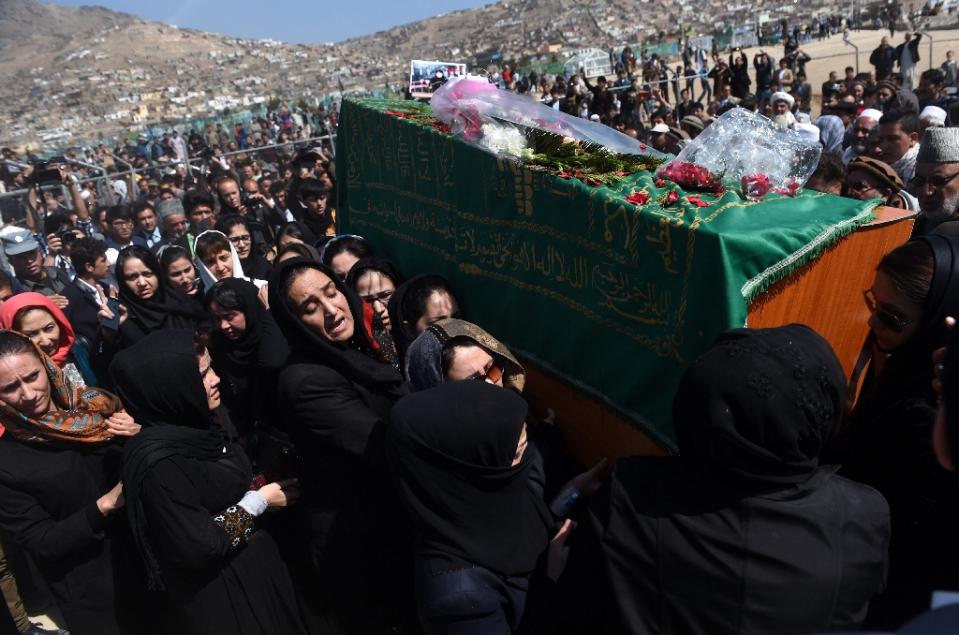Protests and demonstrations have broken out in cities across Afghanistan this week in the wake of the massacre of seven people from the Hazara ethnic minority. The decapitated bodies of four men, two women and a child were found Saturday in a rural town in the southern province of Zabul. The attacks were carried out by militants who some suspect are linked to the Islamic State.
Marchers in Kabul on Wednesday walked for almost four hours with the coffins of the victims, which included the body of Shukria, a 9-year-old girl. They chanted slogans against the government, the Taliban and neighboring Pakistan, which is seen as having a hand in Afghanistan’s Islamist insurgency. Some protesters attempted to storm the presidential compound.
A reporter from the Wall Street Journal filmed Shukria’s tragic passage:
The week has been marked by nationwide vigils and demonstrations.

People in Mazar-e Sharif on Thursday protest the recent beheading of some Hazara civilians by militants. (Hoshang Hashimi/AP)

A candlelight vigil for the beheading victims was held Tuesday in Kabul. (Wakil Kohsar/AFP via Getty Images)
As my colleague Sayed Salahuddin reported, the demonstrations “highlighted growing discontent at the government’s inability” to deal with the threat of the militants and cast a spotlight on the grievances and unease of the Hazaras, the vast majority of whom are Shiite Muslims and fear further attacks from Sunni militants.
In Pakistan’s Baluchistan province, which borders Afghanistan, dozens of Hazaras have been killed in terorrist attacks over the past decade.
It’s not entirely clear who carried out the abduction and killing of Shukria and the six other Hazaras. The government has cast doubt on the purported connection to the Islamic State, which had been made by provincial officials. The area south of Kabul where the victims lived is home to a number of Taliban factions, some at odds with one another.
“The deliberate murder of civilian hostages, including women and children, is particularly abhorrent,” Nicholas Haysom, the United Nations’ top official in Afghanistan, told reporters. “These senseless murders may amount to war crimes, and the perpetrators must be held accountable.”
Whoever the culprits are, the killings have set off a fire in the country and put pressure on President Ashraf Ghani to respond. On Wednesday morning, he promised tough action.
But the targeting of the Hazaras, a community that traces its roots to the medieval invasions of the Mongols, is a long-running crisis. Earlier this year, my colleague Sudarsan Raghavan reported on the uncertain fate of dozens of ethnic Hazaras forcibly removed from buses by suspected Taliban militants and taken captive.
“We don’t know what our sin is,” a relative of one of the passengers toldRaghavan. “From one side, they are targeting us. And from the other side, the government is not helping us.”















